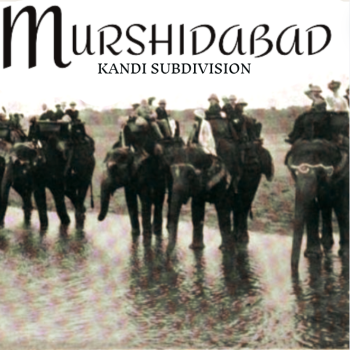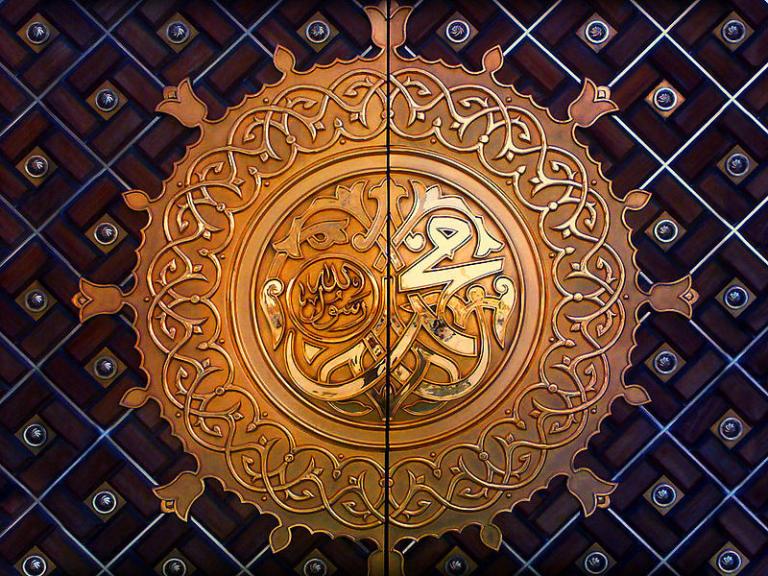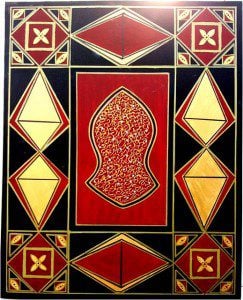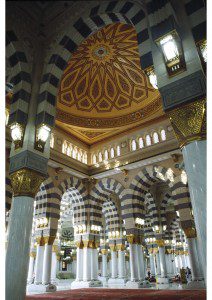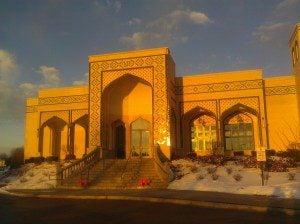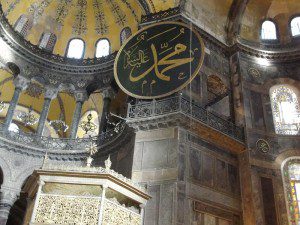 We are in the season of Mawlid – the month in which Muslims around the world celebrate the birthday of our beloved Prophet Muhammad (PBUH). Muslims celebrate our Prophet’s birthday by fasting, learning more about his character and life, and attending communal gatherings where songs and poetry are recited in his honor. For over 1400 years, Muslims have marked this time of year with special prayers, songs and foods. Today, Muslims have incorporated today’s social media culture into the Mawlid: my friend and fellow Patheos contributor, Rabia Chaudry, started the #WhyILoveHim hashtag on Twitter, which quickly went viral. Last year, I shared some of my favorite Muslim praise songs from around the world, and now I reprise that post with praise-songs specific to the Prophet PBUH.
We are in the season of Mawlid – the month in which Muslims around the world celebrate the birthday of our beloved Prophet Muhammad (PBUH). Muslims celebrate our Prophet’s birthday by fasting, learning more about his character and life, and attending communal gatherings where songs and poetry are recited in his honor. For over 1400 years, Muslims have marked this time of year with special prayers, songs and foods. Today, Muslims have incorporated today’s social media culture into the Mawlid: my friend and fellow Patheos contributor, Rabia Chaudry, started the #WhyILoveHim hashtag on Twitter, which quickly went viral. Last year, I shared some of my favorite Muslim praise songs from around the world, and now I reprise that post with praise-songs specific to the Prophet PBUH.
Aminah was conscious of a light within her, and one day it shone forth from her so intensely that she could see the castles of Bostra in Syria. And she heard a voice say to her, “Though carriest in thy womb the lord of this people; and when he is born say: I place him beneath the protection of the One, from the evil of every envier;” then name him Muhammad [the one who is praised]. (Lings, p. 21)
Australia
Ahbab al Mustafa – Rahma Islamic Association
Allahumma Salli wa Sallim – Ahbab al Mustafa
Bi Mawlid Hadeena – Muslim Community Radio
Salli Ala Muhammadin – Haria Zikri
Africa
Ahmed Ya Habibi (Sudan)
Ahmed Ya Habibi Ya Rasul Llah (Somalia)
Allah’s Salawat Upon Taha (Egypt)
Al Bashir al Nadhir – Majmoua al Imam al Ghazali (Morocco)
Muhammad Peace Be Upon Him – Zain Bhikha & Khalil Ismail (South Africa)
Salawat of East Africa (Ethiopia)
Ahmed Ya Habibi Salam Alayk (Sudan)
Madad Madad Ya Rasul Allah – Mohamed Mounir (Egypt)
Amdah Nabawiya (Morocco)
Yalla Nzourou – Hicham Farouk (Morocco)
Asia
Amen-Amin Qawwali Gospel – Faiz Ali Faiz Ensemble & Holy Ecstasy (Pakistan/US)
Jahan Roza-e-Pak – Qari Waheed Zafar Qasmi (Pakistan)
Jashne Aamade Rasool – Hussain & Zain Bhikha (South Asia/South Africa)
Sallu Alayhi wa Aalihi – Saira Naseem (Pakistan)
Pukaro Ya Rasool Allah – Farhan Ali Qadri (Pakistan)
Marhaba Ya Mustafa – Milad Raza Qadri (Pakistan)
Mawlid in Turpan (China)
Mohammed Mustafa Sa Koi Data Ho Nahi Sakta – M.Sharif Raza Pali (India)
Ya Rabbi Bil Mostafa – Haddad Alwai & Sulis (Indonesia)
Europe
Anthem for the Prophet’s Birthday – Harmonia Alcorani (UK)
Al Muallim – Sami Yusuf (UK)
Buji Muhammad Ahmed – Nešidu-l-huda (Bosnia)
Burda – Manaqib Productions (UK)
The Chosen One – Maher Zain (Sweden)
Tala al Badru Alayna – Yusuf Islam (UK)
Mevlud Ilahi Kaside (Bosnia)
Muhammed Je Krune – Medresa Osman (Bosnia)
Al Subhu Bada – Groupe Rissala (Belgium)
Salatu Allah – Groupe Rissala (Belgium)
Mawlid Celebration (Russia)
Middle East
Assalamu Alayka Ya Rasool Allah (Turkey)
Badr min Tayba Tajalla – Nuruddin Khurshid
Kürtçe Mevlit – Muzaffer Gürler (Turkey)
Subhan Man Dhikruhu – Aleppo Singers (Syria)
Ya Habibi Ya Muhammad – Mohamed al Mazem (United Arab Emirates)
Ya Muhammed Eşqa Dilan Remezanê – Muzaffer Gürler (Turkey)
Ya Tayba – Mashary Alafasy (Kuwait)
North America
Allahumma Salli Ala al-Mustafa – Centre Sufi de Montreal (Canada)
Balaghal Ula Bi Kamalihi – Nader Khan (Canada)
Beloved – Baraka Blue (US)
Don’t Talk to Me About Muhammad – Dawud Wharnsby (Canada)
Natawassal bil Hababa – Mohammad Muaz al-Nass (US)
Ya Nour al Ayn, Y Tayba & Tala al Badru Alayna – Mohammad Muaz al-Nass (US)
Madad Madad – The Burdah Ensemble (Canada)
And, finally, I will leave you with a demonstration of the ancient Turkish water marbling art of Ebru, where the rose signified the Beloved Prophet:
Ebru is a visual symphony: Colors and textures weave together into brand-new portraits–yet each one remains distinct. “It’s a striking example of the balance between interdependence and the freedom to express what makes us all unique.” The traditional art makes use of natural earth pigments for its vivid colors and for dispersing the paint in an oxgall substance. Ebru is one of the oldest Turkish paper arts, with roots in the 13th century. The preparation of materials and complexity of the symbolic designs make this an extremely difficult art to learn, requiring many years of study.
Ebru, is formed by carefully taking dye to draw patterns on water. Paper is gently placed on the surface to absorb the colors, and then lifted away, revealing designs brilliant and graceful. “We are using rose brunch which represents love and peace. All the dyes are from the ground, which represent humble and generosity. The Tulip represents Allah (God) and the rose represents our Prophet Muhammad (peace be upon Him). ”





